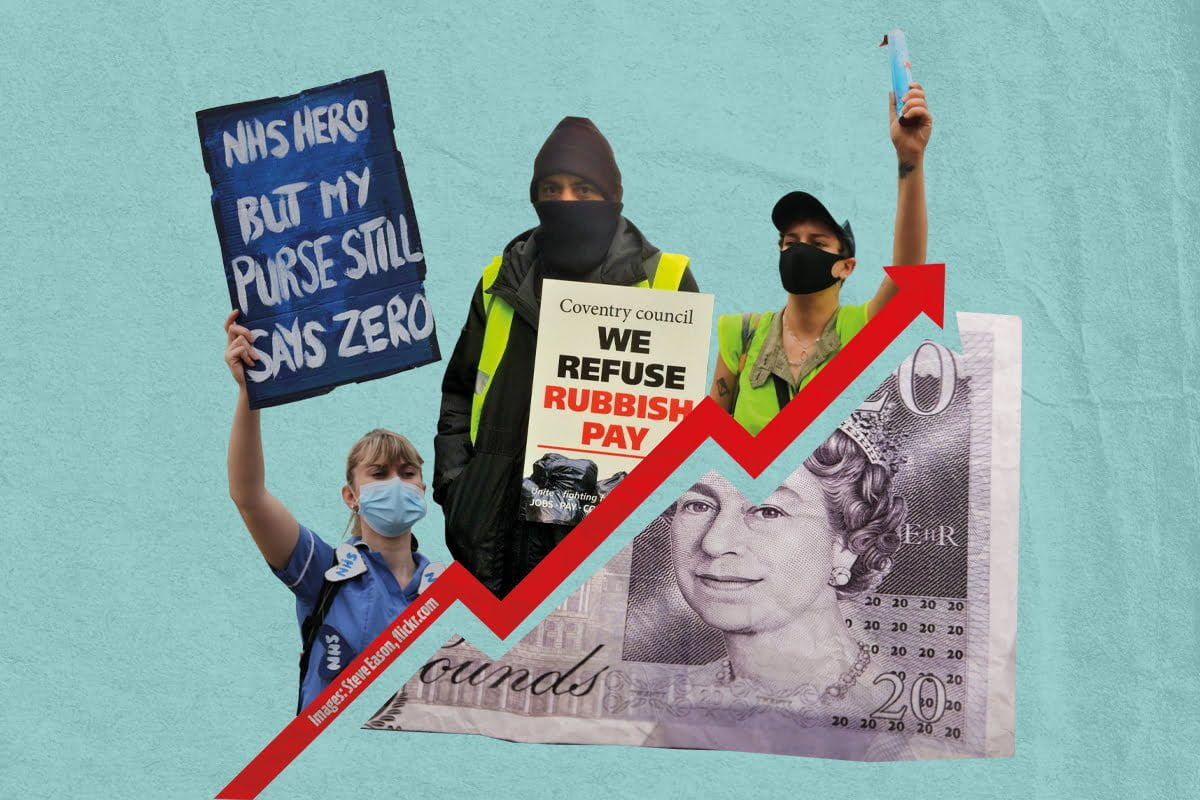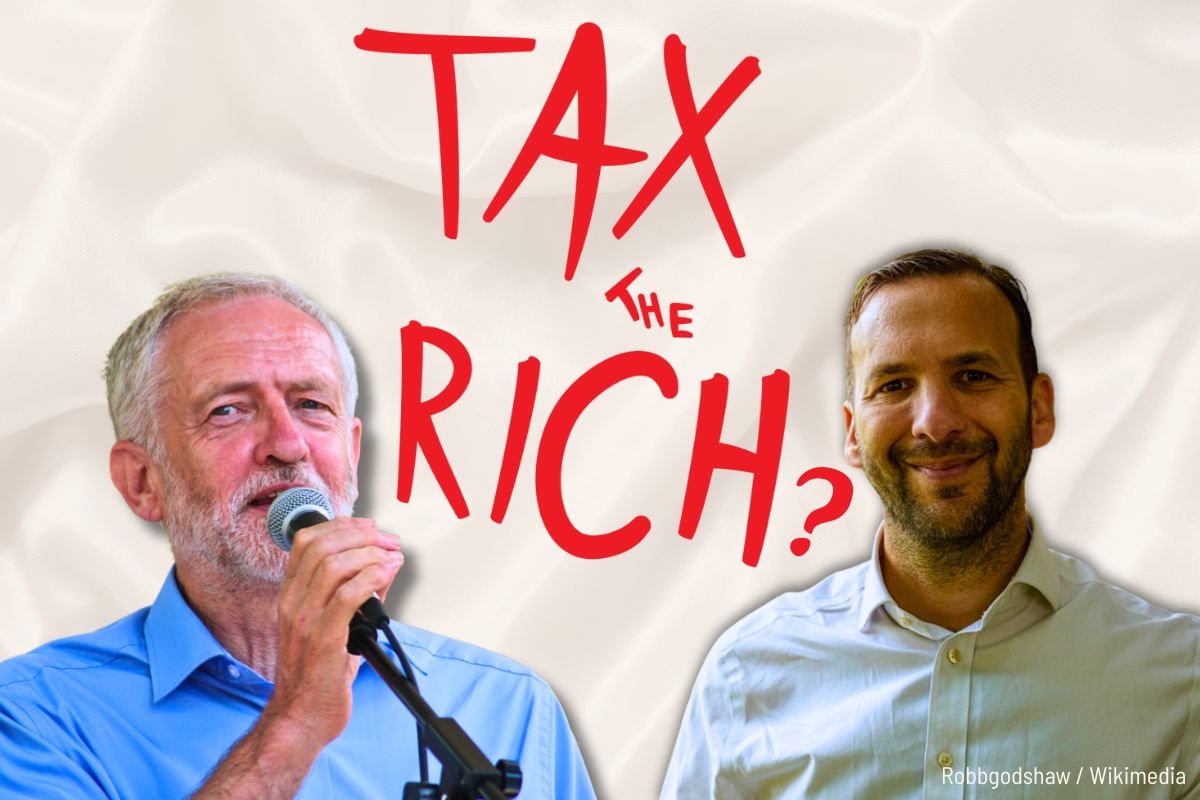Workers are facing a ‘cost of living catastrophe’ over the coming months, with rapidly rising inflation. Already several unions are balloting for action over pay. What is needed is a coordinated struggle to take power out of the hands of the bosses.
With COVID cases falling, many will be looking forward to an end to the nightmare of the pandemic. But instead of relief, a new threat is emerging that threatens to smash the living standards of millions – that of rapidly rising prices.
Workers are facing a ‘cost of living catastrophe’ over the coming months. Whilst the rich get richer and richer, millions will be counting the pennies just to stay afloat.
Feeling the squeeze

Energy bills are set to go through the roof in April, when the price-cap on household tariffs will be raised by 54%. On average, bills are expected to rise to almost £2,000 per year – an increase of just over £700. As a result, an estimated six million households will be plunged into ‘fuel poverty’, unable to heat their homes.
And with every week that passes, it’s becoming increasingly difficult to put food on the table. Grocery and petrol bills have already surged, with the CPI measure of inflation now at 5.4%. This is expected to rise to 7.25% by April, which will put further pressure on living standards.
Added to this are sky-high rents, which continue to go up and up. Last year, private-sector rents increased by the fastest rate for 13 years. And with social housing rates linked to CPI, millions of tenants are set for the largest hike in a decade when rents are reviewed this April.
At the same time, real wages are failing to keep pace, meaning workers everywhere are feeling the pinch. This comes on top of a decade of wage restraint and austerity, which has seen the biggest fall in living standards in two centuries.
In response to surging inflation, the Bank of England has again raised interest rates, with further rises expected in the coming months. Taken together with rising inflation, this is expected to squeeze households’ disposable incomes by 2% this year – the biggest reduction since records began in 1990.
Breaking point

In order to ‘take the sting’ out of the coming price increases, Tory chancellor Rishi Sunak has promised to cut £200 from all energy bills, with a further £150 council tax rebate offered to those on the lowest bands.
Yet this will barely scratch the surface for the millions of households struggling to make ends meet. And it won’t come close to undoing the damage inflicted by their previous attacks to workers and the unemployed.
Only recently, the Tories withdrew the £20 uplift to Universal Credit, plunging thousands into abject poverty. And the government is pressing ahead with their plans to raise national insurance and freeze income tax thresholds in April, meaning a typical household will be £600 worse off.
According to the bosses and establishment politicians, nothing can be done about this, as it is simply the work of ‘market forces’. What this means is that the millionaires will continue to live comfortably, whilst millions struggle to get by.
But we say that if capitalism can’t afford to provide even the most basic needs for ordinary people, then we can’t afford to live with capitalism.
Conditions are reaching a breaking point. Many workers will be asking not ‘can I afford to strike’, but ‘can I afford not to strike’.
Already several unions are moving towards strike action over pay, such as workers in education, healthcare, and on the railways. There is the potential to unite these struggles into a powerful movement to bring down the Tories, starting with a one-day public sector strike.
Fight for socialism
In response to these cuts to living standards, protests have been called by a number of trade unions and activist groups for Saturday 12 February in Manchester and London. Organisers are demanding a wide range of measures to combat the cost of living crisis, including cutting energy bills, controlling rents, and increasing benefits.
These demands are all important to fight for. But the protest organisers offer no explanation as to how they will be funded, except to say by ‘taxing the rich, not raising NI’.
We must be clear, however, that the cost of living crisis is a direct product of capitalism – an anarchic system based only on profit. Whilst it is vital that we make the rich pay for this crisis, the reality is that they will find all sorts of ways to avoid paying taxes.
And so long as the economy is run according to blind market forces, the inflation that has been built into the system over the past few years will continue to run rampant, further decimating living standards.
As the old socialist adage goes: you can’t plan what you don’t control; and you don’t control what you don’t own.
By taking power out of the hands of the bosses, bankers, and billionaires, and nationalising the key sectors of the economy under workers’ control, we could democratically plan production along socialist lines to meet all our needs – and much more.
The trade union leaders must rise to the occasion. There can be no more ‘business as usual’ and cosy deals with the bosses. Stormy class struggle is the order of the day.






